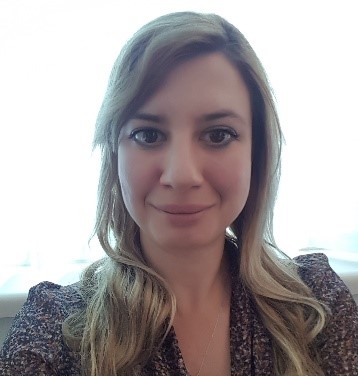|
Project title: Establishing inhibition of MMP-14 as a viable therapeutic in Dupuytren’s Disease
|
|
Grant Holder:
Miss Mira Pecheva
Position:
Trauma and Orthopaedic Registrar, East of England Deanery
|
 |
| Date of award |
01/11/2021 |
| Start date for research |
01/11/2021 |
| Date of report |
17/02/2022 |
| Grant Awarded |
£46,813 |
| Is this an interim, or final report |
Interim |
|
Summary of project/progress /findings (approx 300 words):
Based on previous studies, our hypothesis is that the enzyme Matrix Metalloproteinase 14 (MMP-14) has a key and complex role in Dupuytren’s Disease (DD) incidence and progression. The aim of the first year of this three year PhD project is to ascertain the phenotypic effect of the single nucleotide polymorphism (SNP) in the MMP14 gene through an explant model of DD - a three-dimensional culture system, the ex-vivo ‘clinical trial’, which was previously established at our institution following a collaboration with the University of Bern.
Sample collection of excised Dupuytren’s tissue from patients undergoing surgery as part of their treatment at Norfolk and Norwich University Hospital commenced at the end of November 2021. Patients are genuinely interested in this project and all patients undergoing surgery since sample collection started have donated tissue samples (n=21). We will be providing patient feedback throughout the project.
Samples have been processed in tissue culture, with myofibroblast derivation and cryopreservation. Optimisation of DNA extraction for genotyping to identify the presence of the SNP has been successful and a protocol for extraction of genomic DNA with high purity has been developed. Tissue samples have also been embedded in paraffin and undergone haematoxylin and eosin (H&E) staining for histological analysis.
Sample collection will continue alongside the next phase of the project. This will include genotyping all samples to identify the presence of the SNP and establishing the thee-dimensional culture system, the ex-vivo ‘clinical trial.’ We will monitor gene expression by qRT-PCR and protein by western blot and immunofluorescence (IF) using confocal microscopy. Specific genes of interest include MMP-14 itself, type I collagen (COL1A1), type III collagen (COL3A1) and smooth muscle actin (ACTA2), as well a number of other matrix genes, proteinases, inhibitors and signalling genes. We will also use zymography to measure proMMP-2 activation (an outcome of MMP-14 activity) |
|
What is the relevance/value of this research to hand surgery:
Dupuytren’s disease is the most common localised fibrosis and has a significant burden to patients, their families and employers and the NHS. There is no pharmaceutical therapy available. Treatment is through surgery, but recurrence is frequent and further intervention less successful. Surgery does not affect the underlying disease activity, confirmed by high recurrence rates. The direct costs of DD to the NHS are estimated at £60 million per year. This project will outline the molecular mechanisms involved in this disease and identify therapeutic targets to prevent its progression and recurrence.
|
|
Please list presentations based on work performed in this study:
An abstract will be submitted to the BSSH Scientific Meeting, Oct 2022.
Further work will be submitted to the International Dupuytren’s Symposium, IFSSH and the Tissue Repair and Regeneration Gordon Research Conference. |
|
Please list publications based on work performed in this study:
The research conducted in this study has not been published yet. |
|
Please state what additional research this study has/is leading to:
This study will lead to further research into the aetiology of DD |
|
Please list any further funding or grant applications (with outcome), which have resulted from the award of this grant:
- Action Arthrtitis Charitable Trust – Full funding for Year 2 - £48, 838
- Gwendoline Fish Charitable Trust – Funding for Year 3 - £17, 655
Orthopaedic Research UK – Funding for Year 3 - £ 34,850 |
|
How has this grant awards helped your career development?
This grant has been immensely helpful as it has set the foundation for the project by supporting the first year. This has been instrumental in securing further funding and enabling the project to start.
I have learned numerous laboratory skills through and have attended a number of modules at the University of East Anglia to develop transferable skills which will be invaluable in the future as an academic consultant.
|